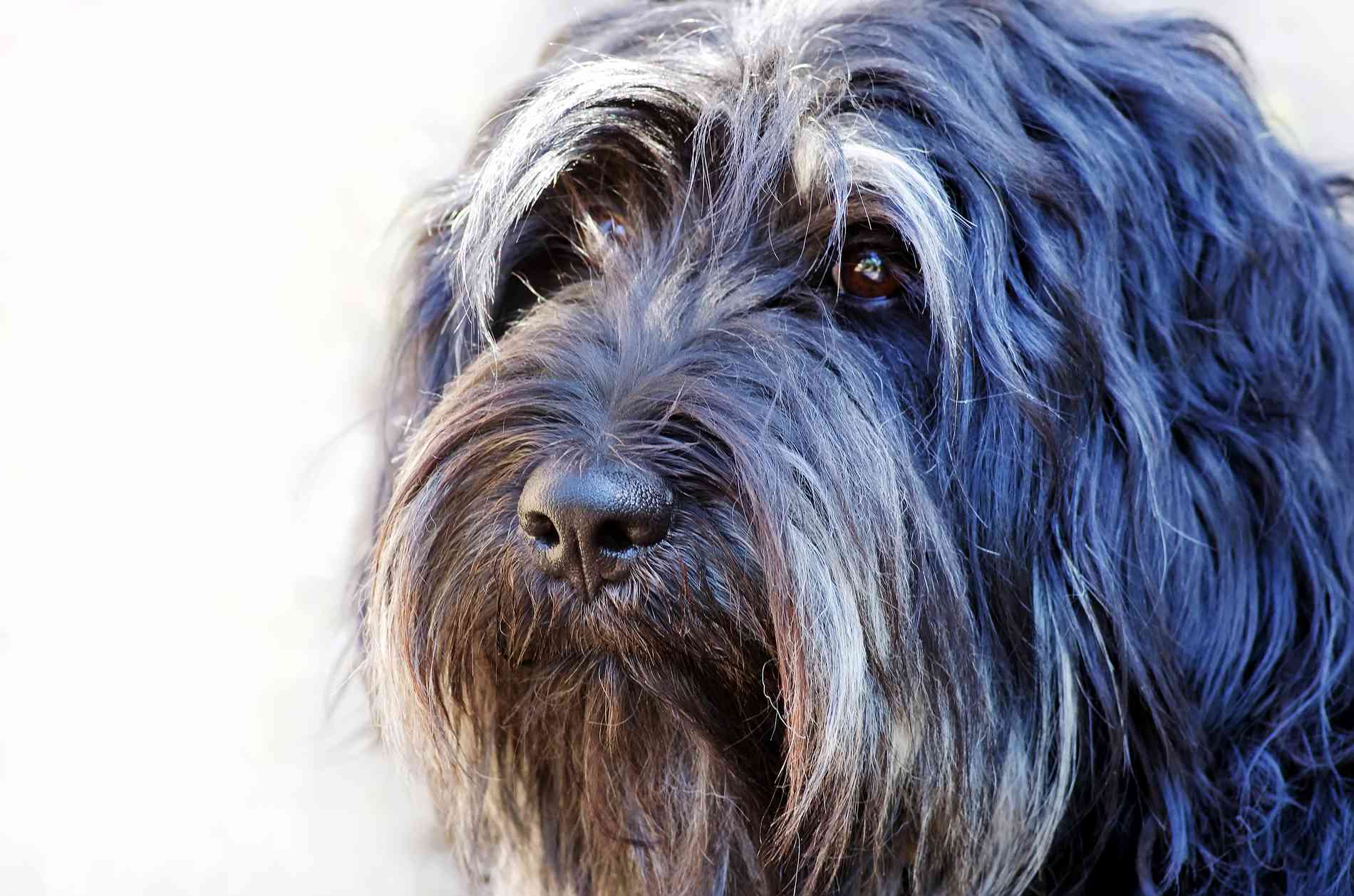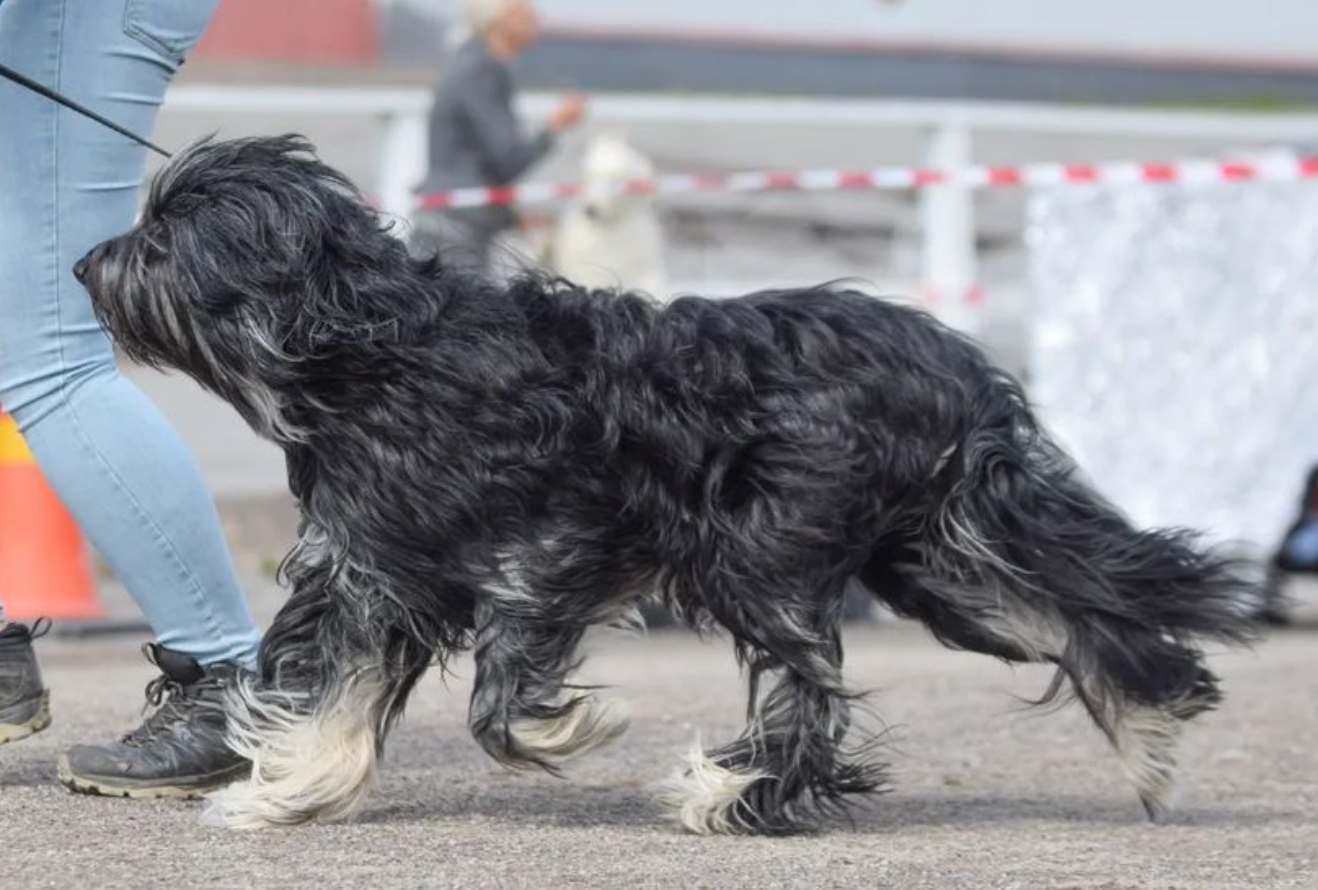
The Portuguese Sheepdog, also known as the Cão da Serra de Aires, is a herding breed native to the Serra de Aires region in Portugal. Its origins date back to the early 20th century, where it was developed for herding cattle, sheep, goats, and even pigs in the harsh and rocky terrain of the Portuguese countryside.
It’s believed to be descended from Briards brought to Portugal and crossed with local mountain dogs, creating a breed known for its intelligence, agility, and hardworking nature. While it remains relatively rare outside its homeland, it is highly respected in Portugal for its herding skill and charming personality.
In Portugal, the breed enjoys modest popularity as a working dog and companion. Internationally, the Portuguese Sheepdog is gaining recognition, especially among enthusiasts of rare or herding breeds. It is recognized by the Fédération Cynologique Internationale (FCI) and more recently by kennel clubs such as the AKC (American Kennel Club) under the Foundation Stock Service.
Its versatility and character are helping it grow a fan base in Europe and North America, particularly with dog sport competitors and rural families.
Known affectionately as the "monkey dog" due to its expressive face and shaggy coat, the Portuguese Sheepdog is a medium-sized, rustic, and athletic dog designed for endurance and flexibility.
• Height: 16.5–21.5 inches (42–55 cm)
• Weight: 26–40 pounds (12–18 kg)
• Build: Square, lean, and well-muscled
• Coat: Long, dense, and wavy; no undercoat
• Color: Yellow, fawn, wolf gray, black, or chestnut, sometimes with shadings but never with white patches
• Head: Strong with a well-proportioned skull and short muzzle
• Ears: Set high and usually dropped, giving it a gentle look
• Tail: Naturally long or docked (though this is discouraged in many regions)
The Portuguese Sheepdog is bright, lively, and extremely affectionate, with a strong herding instinct and a love for human interaction.
• Highly Intelligent: Quick learner and problem-solver, ideal for advanced training
• Playful and Energetic: Loves playtime and thrives in active environments
• Devoted and Loyal: Bonds closely with family and is protective without aggression
• Good with Children and Pets: Gentle and affectionate, but may try to herd them!
• Alert but Not Aggressive: Makes a good watchdog thanks to its keen senses

For those who appreciate a loving and lively working dog, the Portuguese Sheepdog offers the best of both worlds. It excels as a family companion, farm dog, or dog sport participant.
This breed is ideal for:
• Active families who enjoy outdoor activities
• Farmers and ranchers looking for a reliable herder
• Agility or obedience competitors
• Experienced dog owners who enjoy training and structure
• Exercise: Needs at least 60 minutes of vigorous daily activity. Long walks, agility, herding trials, and playtime are perfect.
• Training: Highly trainable and eager to learn but can be independent. Keep sessions fun and positive.
• Grooming: Weekly brushing is essential to prevent matting. The coat doesn’t shed much, but regular care is needed due to its length.
• Living Environment: Adapts well to rural or suburban homes with space to run. May become restless or destructive if bored.
• Diet: Feed a balanced, protein-rich diet suitable for medium active breeds.
The Portuguese Sheepdog is generally healthy and hardy, though like all breeds, it may be predisposed to some issues:
• Hip dysplasia
• Eye conditions (such as cataracts)
• Skin and coat maintenance issues if grooming is neglected
The breed has a lifespan of 12–15 years, and regular vet visits, good exercise, and proper grooming are key to its well-being.

• Briard: Larger and more reserved; the Portuguese Sheepdog is lighter and more energetic.
• Polish Lowland Sheepdog: Both are shaggy-coated herders, but the Portuguese Sheepdog is generally leaner and more rustic.
• Bearded Collie: Similar in personality and energy, though the Portuguese Sheepdog is less widely known and more independent.
If you want a fun-loving, trainable, and loyal dog with strong herding instincts and an amusing personality, this breed could be a perfect fit. It thrives with people who have time to train, play, and involve their dogs in daily life.
It is not ideal for sedentary households or those looking for a low-maintenance companion. However, for those willing to put in the effort, the Portuguese Sheepdog rewards its owners with unwavering affection and joy.
Due to the breed’s rarity, it's important to connect with reputable breeders or national breed clubs. Look for breeders who prioritize health screenings and socialization. United Pet Club can assist with breed-specific guidance, breeder referrals, and travel documents, especially for less common European breeds.